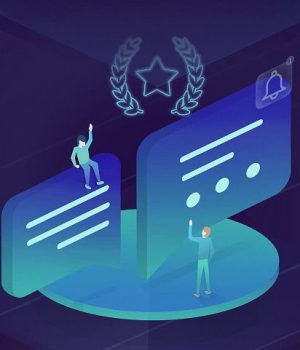Your software’s existence does not begin with the development and concludes with its release. It instead has a continuous lifespan that stops and begins as needed. The commencement of its lifespan and the start of a significant amount of labor.
Software is always evolving, and it must be carefully monitored and maintained as long as it is in use. This is mainly to accommodate internal organizational changes, but it is also critical since technology is always evolving.
Your software may need maintenance for various reasons, including keeping it up and running, adding new features, reworking the system to accommodate future changes, moving to the cloud, or making other adjustments. Whatever your motivation for software maintenance is, it is vital to the success of your firm. As a result, software upkeep entails more than just detecting and correcting flaws. It’s about keeping your company’s heart beating.
What is the Definition of Software Maintenance?
Software maintenance is a large task that follows the completion of software development and releases to the market. Maintenance is performed to optimize the program by removing unnecessary features, minimizing the likelihood of errors, and implementing advanced development.
Software development should take one to two years, while software maintenance is a continuous process that might take ten to twenty years.
If you need services of this type of service – you need to choose a reliable software support company.
Software maintenance may be divided into four categories:
- Corrective Software Maintenance
- Maintenance of Adaptive Software
- Perfective Software Maintenance
- Preventative Software Maintainance
Maintenance of Corrective Software
When most people think of maintenance, they think of corrective software maintenance. Correct software maintenance handles problems and flaws in software applications that may affect many aspects of your program, such as design, logic, and code. These fixes are normally the result of user or customer issue complaints, but corrective software maintenance may help you detect them before your customers do, which can boost your brand’s image.
Maintenance of Adaptive Software
When your program’s environment evolves, adaptive software maintenance becomes critical. Changes in the operating system, hardware, program dependencies, Cloud storage, and even changes inside the operating system might cause this. Adaptive software maintenance may also reflect corporate policies or guidelines. Adaptive software maintenance is required when updating services, changing suppliers, or switching payment processors.
Maintaining Perfect Software
Perfect software maintenance focuses on the growth of your system’s needs and features. Users may detect things you didn’t, or they may suggest new features they’d want to see in the product, which may turn into future initiatives or expansions. Perfective software maintenance takes over part of the job, both adding and deleting features that might improve the user experience. This may include features that aren’t utilized or don’t assist you to achieve your objectives.
Preventative Software Maintainance
This type of Software Maintenance allows you to make adjustments and alterations to your program so that it will last longer. This kind of maintenance has the purpose of preventing your software from degrading as it adapts and evolves. These services may involve code optimization and documentation updates as required.
By making software more stable, understandable, and maintainable, preventative software maintenance reduces the risk of operating software over a lengthy period of time.
For many businesses and organizations, software maintenance is an integral part of the software development lifecycle. This is not something that can be avoided. It is critical to the success of your program as well as any future development. It’s crucial to understand that software maintenance entails much more than just repairing problems or bugs – that’s only one stage in the process.
The software maintenance examples also involve updating software environments, preventing degradation, and improving what is currently there to assist meet the demands of all users.
Conclusion
Your program is never really finished as long as end customers are using it. Because of the ever-changing technological world, software nowadays needs continual maintenance to stay current.
As a result, as a product owner, you should concentrate on improving your software so that it advances in tandem with new technologies, trends, and business objectives. Check out the software support offered here: https://www.dewais.com/.
Follow Techiemag for more!








